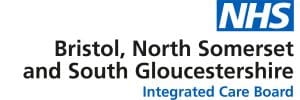Industrial action and local NHS pressures
The NHS in Bristol, North Somerset and South Gloucestershire is working hard to keep people safe during the planned strikes, while delivering the best care possible.
Junior doctors will be striking from 7am on Saturday 24 February to 11:59pm on Wednesday 28 February 2024.
If you have an appointment, please continue to come forward for the care you need. Please don’t call to check if your appointment is going ahead. You will be contacted directly if your appointment needs to be rearranged.
No-one should put off seeking urgent or emergency care during the strikes and people with serious, life-threatening conditions will continue to be seen at our Emergency Departments.
However, please keep 999 and A&E clear for genuine life-threatening emergencies, and use NHS 111 online or by phone for other urgent care needs or if you’re unsure about whether you should go to hospital. If you are contacting 111, please give as much information as you can, as that will help you get the right support and advice.
On days when there is strike action, people should only call 999 if it is a medical or mental health emergency. Ambulances will still respond in these situations but this may only be where there is an immediate risk to life.
Less serious calls may not receive a response for the duration of the strike action. Please do not call back asking for an estimated time of arrival of an ambulance. This information cannot be provided and it blocks lines for other callers.
Our website has detailed information on local services including community pharmacies, which can help with a wide range of minor health issues and advise if another NHS service is needed.
Information is also available via our Twitter channel.
Visit the NHS England website for further information about the strikes including answers to Frequently Asked Questions.
Find out more about the latest visiting arrangements at local hospitals, care homes and other facilities.
Pressure across local health and care services
The NHS continues to face high demand and industrial action means these services will be under more pressure, so it is vital that people use the services available appropriately.
Some ambulances are being held at hospitals due to a lack of available beds for their patients. However, many people already in hospital are ready to go home or to another care setting.
To help with this, friends and relatives of individuals who are medically fit for discharge are asked to help with the practical arrangements that will enable their loved one to be discharged from hospital. Please also work with community teams to help loved ones at home with meals and domestic support, as this will free-up staff to help others in greater need to have support at home.
Due to these pressures, it is possible that non-urgent, routine appointments and procedures may be cancelled and postponed, to prioritise treatment for those most acutely unwell in community settings, GP practices and hospitals. You will be notified directly if you are affected by the changes.
If your conditions are not life-threatening, you may have to wait longer than usual for an ambulance and, where safe and appropriate, may be asked to make your own way to hospital – although it is important you get medical advice from 111 or 999 before doing so.
Due to these extraordinary pressures, it’s important to use the right service for your needs.
Sometimes a condition is treatable at home such as minor coughs, colds and some common childhood illnesses. Your pharmacist (chemist) can give confidential and expert advice on common conditions and what to do next – find your nearest pharmacy. Parents and carers are encouraged to download the HANDi app which offers simple and straightforward advice when a child is unwell.
Hear from Dr Joanne Medhurst, ICB Chief Medical Officer, about how to choose the best service and #HelpUsHelpYou.

